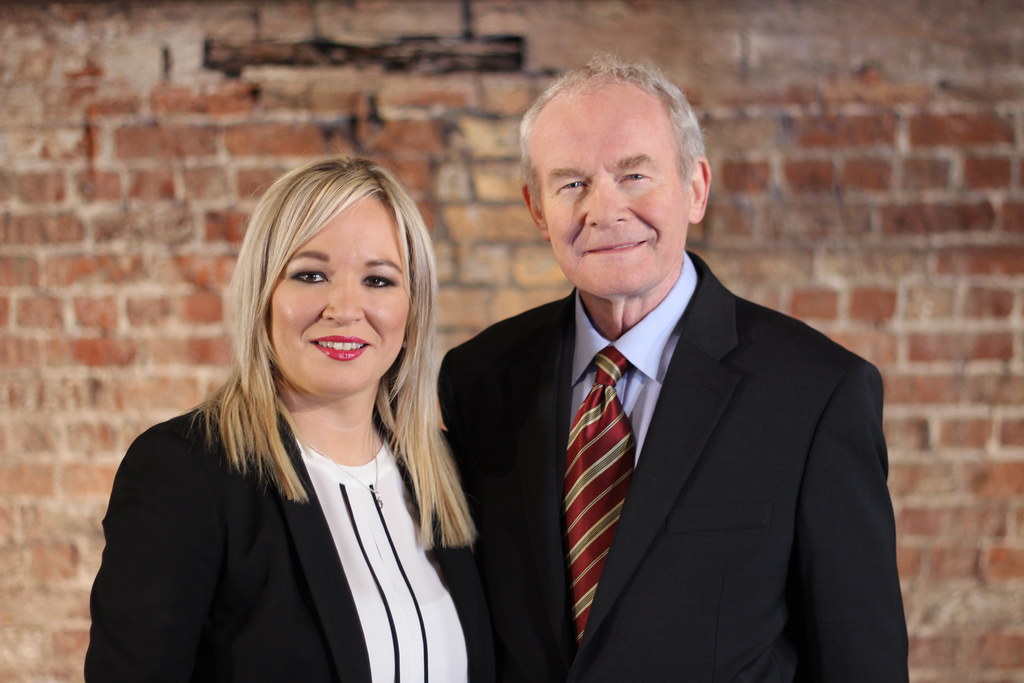With the unpredictable political landscapes of the US and the UK looming in the background, the people of Northern Ireland desperately need a government which will represent them and their interests fully.
Unfortunately, it is likely that the election taking place this week will result in the same internal bickering and fallouts that have come to be expected from Stormont. Polls show that the leading Unionist and Nationalist parties, DUP and Sinn Féin, are expected to hold the majority of positions once again — as they have done for the past ten years.
The election taking place in Northern Ireland on 2 March is the second one to occur in the space of ten months. James Brokenshire, the Secretary of State for Northern Ireland, called the election in January in response to the collapse of Stormont’s coalition Government.
it is likely the election will result in the same internal bickering and fallouts that have come to be expected from Stormont
The breakdown occurred due to tensions between the two power sharing parties elected in May 2016: Arlene Foster’s DUP and Martin McGuinness’ Sinn Féin. Their disagreements came to a head in November 2016, when details of the Renewable Heat Incentive (RHI) scandal were exposed.
The RHI scheme, also referred to as the ‘cash for ash’ scandal, was overseen by Arlene Foster, leader of DUP and First Minister. The incentive offered to pay non-domestic users £1.60 for every £1 they spent on renewable heating. Put simply, it was possible for businesses to make money through surplus use of resources, such as heating empty or unused property. Due to a lack of cost controls, the incentive was recently estimated to cost around £490 million pounds of tax-payers’ money.
Much of the controversy arose over Foster’s reaction to the revelations. Refusing to step aside while a public inquiry took place, she branded the criticism of the scheme “misogynistic”, and later deemed it part of a republican agenda. In an exclusive interview with the BBC, a fellow member of the DUP claimed that Foster had also tried to “cleanse the records” by hiding some of her involvement with the scheme.

Michelle O’Neill has taken over from Martin McGuinness as leader of the Nationalist Sinn Féin. (Image: Flickr.com)
On 9 January, Deputy First Minster Martin McGuinness resigned. He cited “arrogance” displayed by the DUP as the cause. As a result of this, Foster lost her position as First Minister, since neither the Deputy First Minister or the First Minister position can be filled while the other is vacant in Stormont. After a week where both positions remained empty, the Secretary of State called a new election.
There are concerns that the results this week will not provide any significant changes in Government. Arlene Foster remains the leader of the DUP. Sinn Féin, although replacing Martin McGuinness with Michelle O’Neill as leader, have maintained their refusal to return to “the status quo” throughout the election period. Of the five leading parties – DUP, Sinn Féin, SDLP, UUP, and Alliance – only the latter three have expressed a commitment to working together. This has led to speculation and fears that another breakdown of government may soon ensue.
There is, however, one big difference between this week’s election and last year’s one. Due to budget cuts, only 90 MLAs will be elected. Previously, this number was 108. The reduction of seats is expected to effect every leading party except for Alliance.
If ever there was a time for change and a government which works together for the benefit of all, this is it
Turnout at the 2016 Assembly election was 54.9 percent—15 percentage points down from the first election held in 1998. This could reflect a growing disillusionment felt by the people of Northern Ireland about their politics. SDLP, UUP, and the non-sectarian Alliance party will all be hoping to win extra votes as result of dissatisfaction with DUP/Sinn Féin leadership.
Northern Ireland uses the ‘single transferable voting’ (STV) system. Simply put, this means that voters can rank candidates in order of preference. Candidates who exceed a certain quota are automatically elected; their surplus votes are then transferred to other candidates. To fill remaining seats, lowest-ranked candidates are eliminated and second or lower preferences are redistributed.
The key advantage of this system in Northern Ireland is that, ideally, voters should not feel pressured to vote for a popular party on the basis of whether they are Nationalist or Unionist. Unfortunately, this is not always the case, with some parties being accused of using ‘scare tactics’ and the threat of their opposition to win votes.
Naomi Long, leader of Alliance, was met by applause earlier this week, during a televised Leader’s Debate, when she said to Arlene Foster: ‘You’re there to represent the entire community – not just your community, or their community.’ Her comment encapsulated frustrations felt by the public about both Sinn Féin and DUP. While the people of Northern Ireland have long put sectarianism and bitterness behind them, their politics has not yet caught up. If ever there was a time for change and a government which works together for the benefit of all, this is it.


